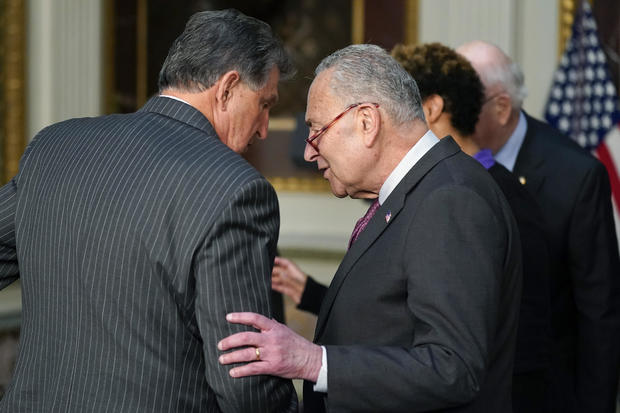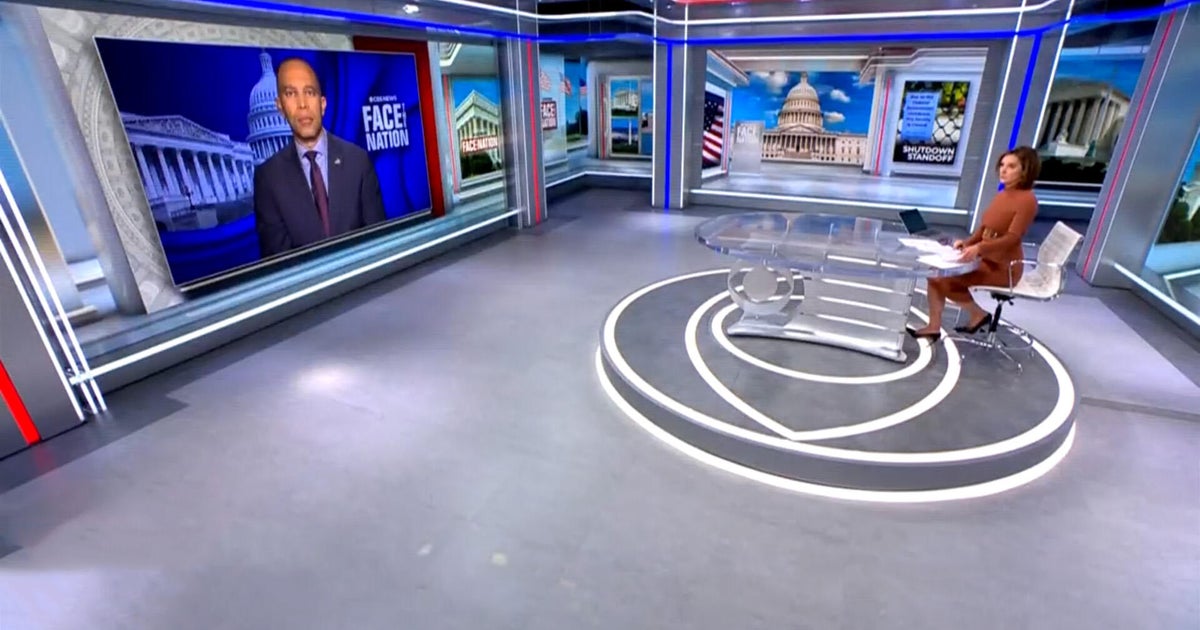Manchin and Schumer announce surprise deal on climate, health care and tax package
Sen. Joe Manchin announced Wednesday that he had reached an agreement with Senate Majority Leader Chuck Schumer — which had eluded them for months — on health care costs, energy and climate issues.
The package will be paid for by closing tax loopholes on wealthy individuals and large corporations, Schumer and Manchin said in announcing the deal.
The health care, tax and energy package needs to be reviewed by the Senate parliamentarian to pass through the budget reconciliation process, which allows Democrats to approve the measure with 50 votes. In a joint statement, Schumer and Manchin said the "revised legislative text will be submitted to the Parliamentarian for review this evening and the full Senate will consider it next week."
President Joe Biden said in a statement Wednesday that he had spoken to Manchin and Schumer and he supports the deal.
"If enacted, this legislation will be historic, and I urge the Senate to move on this bill as soon as possible, and for the House to follow as well," Mr. Biden said.
Manchin, a Democrat from West Virginia whose resistance had long derailed sweeping legislation on those issues, abruptly revealed the agreement in a press release, followed by a joint release with Schumer.
The announcement from Manchin came hours after the Senate passed the Chips and Science Act, a bill to subsidize investments in domestic semiconductor chip production. Senate Minority Leader Mitch McConnell had threatened to stymie the semiconductor bill if Democrats continued to pursue party-line reconciliation legislation.
"From here forward, the debate over a future reconciliation bill or any targeted legislation must focus on supporting the everyday hardworking Americans we have been elected to serve," Manchin said in a statement. "I support the Inflation Reduction Act of 2022 because it provides a responsible path forward that is laser focused on solving our nation's major economic, energy and climate problems. The question for my colleagues is whether they are willing to put their election politics aside and embrace the commonsense approach that the overwhelming majority of the American people support and will best serve the future of this nation."
According to a one-page description of the legislation from Schumer and Manchin, the bill would invest $369 billion in energy security and climate change and extend the Affordable Care Act program for three years. In addition, the legislation would grant Medicare the ability to negotiate prescription drug prices.
Senator Elizabeth Warren on Wednesday noted the finality of the deal.
"The good news here is that it is Senator Manchin, who is announcing a deal, not that they're close to a deal or not that there are some parts to a deal," she said.
House progressives also seemed optimistic, tweeting, "We'll need to evaluate the details, but it's promising a deal to deliver on those issues might finally be in reach."
Republicans immediately criticized Manchin's agreement. Senator John Cornyn of Texas called it "Manchin's New Build Back Broke Bill."
"Senate Democrats can change the name of Build Back Broke as many times as they want, it won't be any less devastating to American families and small businesses," Cornyn said. "Raising taxes on job creators, crushing energy producers with new regulations, and stifling innovators looking for new cures will only make this recession worse, not better."
— CBS News' Jack Turman and Nikole Killion contributed to this report






